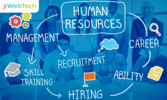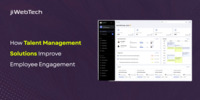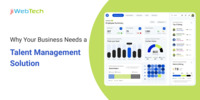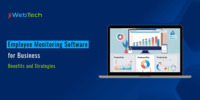- Jan 07, 2025
- Talent Management
- 2069
Share this post on:
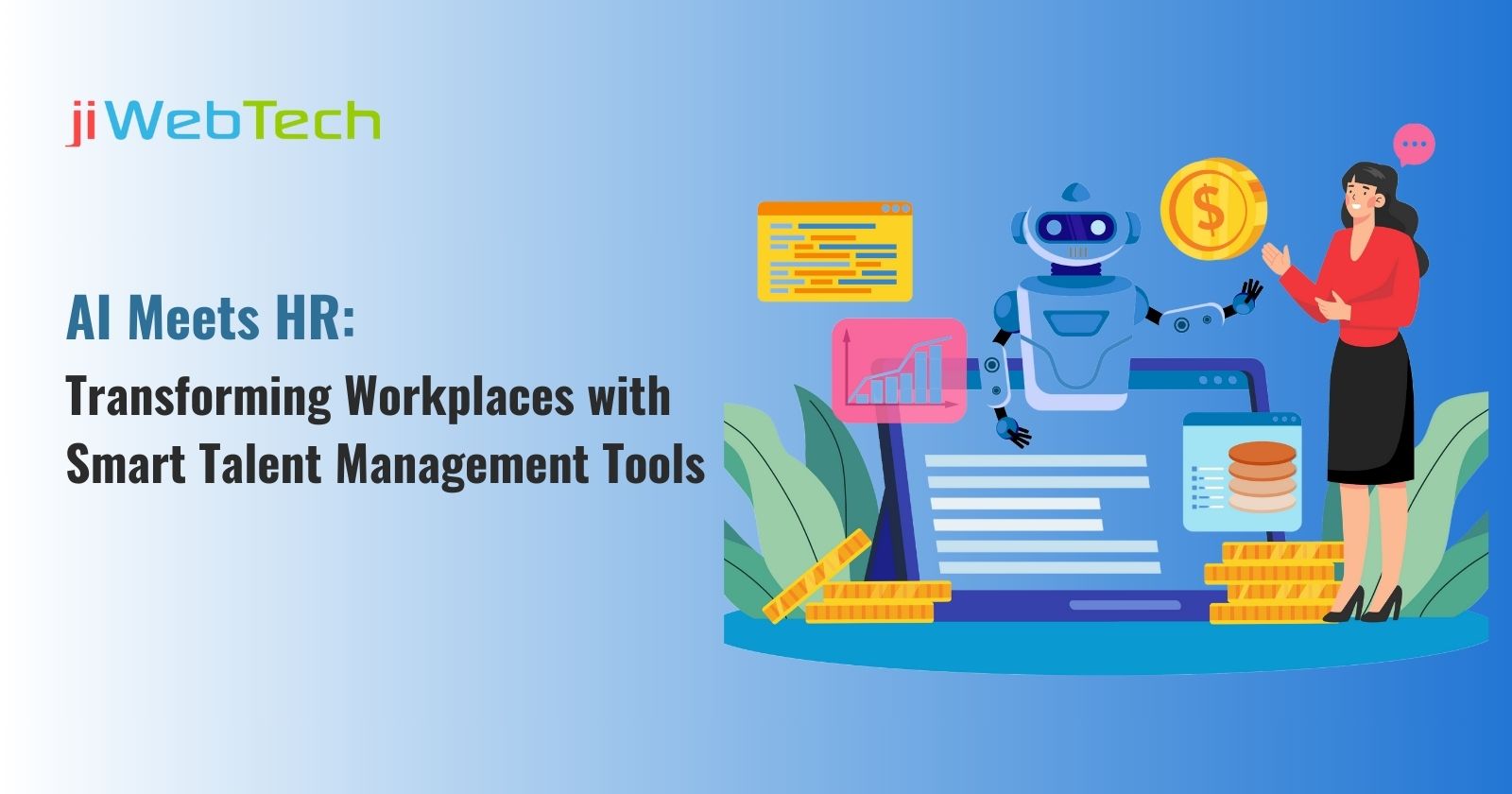
The integration of artificial intelligence (AI) into human resources (HR) is reshaping how organizations manage talent. As businesses face challenges in attracting, developing, and retaining top talent, AI-powered solutions are becoming essential tools for effective workforce management. This blog explores the transformative impact of AI on talent management, focusing on its evolution, best practices, future trends, and the overall implications for HR.
How has HR evolved with the integration of AI?
The evolution of HR has been marked by significant technological advancements, with AI standing out as a game-changer. Historically, HR functions relied heavily on manual processes, which were often time-consuming and prone to human error. However, the advent of AI in HR has revolutionized these processes in several ways:
1. Streamlined Recruitment Processes: AI-powered talent management solutions have automated various aspects of recruitment. From resume screening to candidate matching, AI analyzes vast amounts of data to identify the best fits for job roles. This efficiency not only speeds up the hiring process but also enhances the quality of hires by reducing biases inherent in human decision-making.
2. Enhanced Employee Experience: AI tools facilitate personalized employee experiences by analyzing individual performance data and preferences. This allows organizations to tailor learning and development programs to meet specific employee needs, fostering a culture of continuous improvement and engagement.
3. Data-Driven Decision Making: The integration of AI allows HR professionals to leverage data analytics for informed decision-making. By analyzing trends and patterns within workforce data, organizations can proactively address skills gaps, enhance employee retention strategies, and improve overall workforce planning.
4. Performance Management Re-imagined: Traditional performance reviews are often subjective and infrequent. With AI, organizations can implement continuous performance management systems that provide real-time feedback and insights into employee performance. This shift promotes a more objective assessment process and helps employees understand their strengths and areas for improvement.
5. Succession Planning: AI aids in identifying high-potential employees and preparing them for future leadership roles. By analyzing employee performance data and career trajectories, organizations can create targeted development plans that align with business objectives.
AI in HR: Best Practices
To effectively harness the power of AI in talent management, HR leaders should adopt several best practices:
1. Define Clear Objectives: Before implementing AI solutions, organizations must establish clear goals for what they aim to achieve. Whether it's improving recruitment efficiency or enhancing employee engagement, having defined objectives will guide the selection and implementation of appropriate AI tools.
2. Invest in Data Quality: The effectiveness of AI relies heavily on the quality of data it processes. Organizations should ensure that their data is accurate, comprehensive, and up-to-date to maximize the benefits of AI-powered solutions.
3. Foster a Culture of Change: Implementing AI requires a cultural shift within the organization. HR leaders should promote an open mindset towards technology adoption among employees and provide training to help them adapt to new tools and processes.
4. Prioritize Ethical Considerations: As organizations leverage AI in HR practices, they must be mindful of ethical implications such as data privacy and bias in algorithms. Developing guidelines for ethical AI use will help maintain trust among employees while ensuring compliance with regulations.
5. Monitor and Evaluate Performance: Continuous monitoring of AI systems is essential to assess their impact on talent management processes. Organizations should regularly evaluate the effectiveness of these tools against established benchmarks and make adjustments as necessary.
The Future of AI in HR
The future of HR is poised for further transformation as advancements in AI technology continue to evolve. Here are some anticipated trends:
1. Generative AI Applications: Generative AI tools are expected to play a significant role in personalizing employee experiences further. For instance, these tools can suggest tailored training programs or career development opportunities based on individual skill sets and career aspirations.
2. Increased Focus on Diversity and Inclusion: As organizations strive for diverse workplaces, AI can help eliminate biases from recruitment processes by ensuring objective candidate evaluations based on skills rather than demographic factors. This focus will not only enhance workplace diversity but also drive innovation through varied perspectives.
3. Predictive Analytics for Workforce Planning: The ability to forecast future talent needs will become increasingly vital as businesses navigate changing market dynamics. Predictive analytics powered by AI will enable organizations to anticipate skill shortages and adjust their talent acquisition strategies accordingly.
4. Integration with Other Technologies: The convergence of AI with other technologies such as blockchain and virtual reality could further enhance talent management practices. For instance, blockchain can ensure secure storage of employee credentials while virtual reality may be used for immersive training experiences.
5. Employee Well-being Focus: Future HR practices will likely emphasize employee well-being through AI-driven insights that monitor workload balance and stress levels. By proactively addressing these concerns, organizations can foster a healthier work environment that enhances productivity.
Conclusion
The integration of AI into human resources is fundamentally transforming how organizations approach talent management. By leveraging smart talent management solutions powered by artificial intelligence, businesses can streamline their recruitment processes, enhance employee engagement, and make data-driven decisions that drive organizational success.
As we move forward into an increasingly competitive landscape for talent acquisition and retention, embracing these innovative technologies will be crucial for HR professionals aiming to create agile, efficient, and people-centric workplaces.
In conclusion, as we look towards the future shaped by advancements like AI-powered solutions, it is clear that organizations willing to adapt will be better positioned to thrive in the evolving world of talent management. By harnessing the power of AI in human resources, companies not only improve operational efficiency but also foster an environment where employees feel valued and motivated to contribute their best efforts toward achieving collective goals.
The journey towards integrating AI into HR practices is not just about technology; it’s about reimagining how we view talent management itself—creating a future where every employee has the opportunity to excel while contributing to organizational success through smart workforce management strategies. So, if you are looking to incorporate AI in your HR processes, look no further than jiWebTech. Get in touch with us and learn how our AI solutions can help you improve your HR processes.





